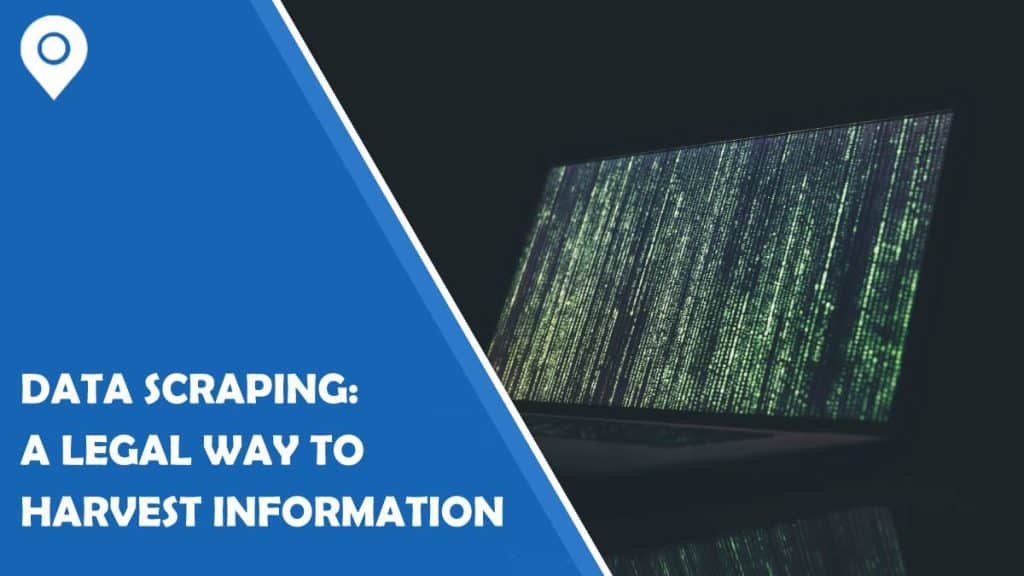Data scraping is a useful technique used to extract data from websites and other sources. It has become an increasingly popular method of data collection in recent years, as more and more businesses find ways to leverage online information for their own benefit.
While there are some legal considerations when it comes to data scraping, the process itself is generally not considered illegal. In this article, we’ll explore what data scraping is and how it can be used in a legal way to harvest your information.
What Is Data Even

Data is a term used to describe any type of information. It can refer to the raw information collected from physical or digital sources, as well as the analysis and interpretation of that data. Data has become an important part of our lives, with its use becoming increasingly widespread in all aspects of society.
Data can be found in many different forms, including numerical values, text documents, images, video clips and audio recordings. By collecting and analyzing data from various sources, people are able to gain insights into how different phenomena interact with one another and how they can be better understood or managed.
Data science professionals utilize sophisticated software tools such as machine learning algorithms and artificial intelligence systems to analyze big data sets for meaningful patterns and trends. This helps organizations make better decisions that lead to improved outcomes for their clients or customers.
What Is Data Scraping

Data scraping is a process used to extract information from webpages. It allows businesses, researchers, and others to automatically collect data from the web in an efficient manner. Data scraping technology enables businesses to quickly and accurately gather large amounts of data for decision-making purposes.
Data scraping involves using specialized software or scripts to scrape or crawl through websites and extract desired information or content such as contact details, product prices, images, text, etc. The program then stores this data in an organized format such as a spreadsheet or database for further analysis and manipulation.
Data scrapers also have the capability to access APIs (Application Programming Interfaces) which allow users to easily access specific sets of data from online sources without having to manually search for it. This is especially useful for larger companies that need to sort through massive amounts of web-based data.
Data scraping, also known as web scraping, can be used for a variety of purposes including collecting competitive intelligence, market research and monitoring online presence. As such, it has become an increasingly popular method for businesses to acquire the data they need. Using a Web Scraping API simplifies this process, allowing businesses to automate data collection efficiently and access structured information from multiple online sources with minimal effort.
The two main components of data scraping are the scraper code and the target site. The first step in this process is to write code that will scrape the target website and then store the relevant information in a structured format. This code usually requires knowledge of HTML or another scripting language such as Python or JavaScript. Once the scraper code is written, it must be tested before being deployed on the target website. After successful testing, you can run your script against any page on your target website and collect all relevant data points into one structured file or database table.
Is It Legal
Data scraping can be an efficient way to get the information you need – but the question remains: Is it legal? The legality of data scraping depends on how it is used. In most cases, it’s considered a breach of terms for websites if users scrape their content without permission or authorization.
This means that by taking information from these sites, one can incur copyright infringement penalties and other legal issues. But there are also some cases where data scraping could be considered acceptable under fair use laws – particularly if the results are used for research purposes or educational endeavors.
Conclusion
Data scraping is a powerful tool that can be used to access and collect data from websites. It is a useful way to collect large amounts of data quickly and easily, so long as the data is not copyrighted or subject to other legal restrictions.
To ensure that data scraping activities remain within the bounds of the law, it is important to review terms of use policies and make sure that any information gathered is being done so in an ethical manner.
